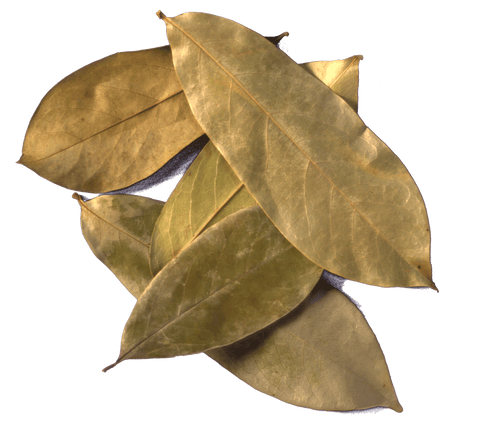ABOUT GRAVIOLA & SOURSOP


GRAVIOLA, SOURSOP, GUANABANA, CORROSOL
You may have heard about graviola, soursop, guanabana and corrosol and assumed that all of these were different plants. In fact, they are all one and the same, the Annona muricata which is prevalent in tropical forests across Southeast Asia, Africa and Central and South America. What you call the plant actually depends on where you live: soursop in English, graviola in Brazil, guanabana in Spanish and corrosol in French.
We prefer to use the term graviola because it is the most commonly used name across much of the world and it certainly sounds more palatable than soursop! However, we do sometimes refer to soursop as just another word for graviola.
WHAT IS GRAVIOLA?
 To immediately set the record straight, the soursop tree is NOT a mysterious plant from the unexplored depths of the Amazon Rain Forest. In truth, soursop is a well-known plant to the indigenous peoples of Central and South America, and was first discovered by Europeans over 500 years ago. Western scientists have actively studied the graviola tree since the 1970s, and a considerable amount of information is available about the plant.
To immediately set the record straight, the soursop tree is NOT a mysterious plant from the unexplored depths of the Amazon Rain Forest. In truth, soursop is a well-known plant to the indigenous peoples of Central and South America, and was first discovered by Europeans over 500 years ago. Western scientists have actively studied the graviola tree since the 1970s, and a considerable amount of information is available about the plant.
Graviola is generally cultivated around the world as a food source and the soursop fruit is popular in much of South East Asia and Latin America.
Both traditionally and contemporarily, soursop has been sought-out for its many health benefits and is today increasing in popularity as an herbal supplement for cancer treatment, diabetes and as a mild sedative to relieve stress and hypertension. As a point of note, most homeopathic graviola remedies use the soursop leaf and NOT the soursop fruit, as this is where the active ingredients can be found.
GRAVIOLA'S HEALTH BENEFITS
Soursop is well known for its health benefits, and is used as a traditional medicine around the world where the graviola tree is present. In herbal medicine, the graviola leaves have been used to: treat stomach ailments, fever, rheumatism, urinary tract infections, stimulate digestion and stop convulsions.
Other uses include the treatment of hypertension, the reduction of blood pressure, lowering of the heart rate, dilation of blood vessels, to relieve depression and as a sedative.
Extracts of graviola have antiviral, anti parasitic, anti-inflammatory, anti diabetic, and anti hyperglycemic properties. Soursop has been used to treat herpes, kill bacterial infections, purge or kill parasites.
If you would like to learn more about the origins, uses and health benefits of soursop, including a more detailed look at its relationship with cancer, you can sign-up for our FREE eBook here.
GRAVIOLA AND CANCER
Much discussion is flying around the internet about the relationship between soursop and cancer treatment and prevention. Much of the information out there is misleading, as it suggests that graviola is a cure for cancer, without delving into the research.
Here is a brief summary of what we do know about graviola and cancer treatment and prevention:
In vivo and in vitro studies show that graviola has anticancer effects and can inhibit the growth of cancer cells. Some studies show that certain elements of graviola may kill specific types of cancer cells, and others have been purported to block cancer cells from expelling cancer-treatment drugs, thus increasing their effectiveness.
However, none of the above research has been made on humans. Therefore, graviola is not medically recognized as a cancer treatment or cancer prevention in humans.
The Graviola Tea Company does not endorse the use of graviola teas for cancer treatment, and makes no claim that soursop can be used as a cure for cancer.
GRAVIOLA TEA
As mentioned above, the majority of herbal soursop remedies use the soursop leaf, where the active ingredients may be found. The primary way of using graviola is in the form of an infusion or tea.
 Graviola tea is made from graviola leaves. The tea takes on a dark green color, somewhere between the color of green and black tea. The flavor is smooth and enjoyable with no after-taste. Graviola blends well with other herbs, making it a neutral base for many herbal infusions.
Graviola tea is made from graviola leaves. The tea takes on a dark green color, somewhere between the color of green and black tea. The flavor is smooth and enjoyable with no after-taste. Graviola blends well with other herbs, making it a neutral base for many herbal infusions.
The best-quality soursop leaves are the mature leaves harvested from an adult graviola tree. Some websites suggest that the young leaves are better, but we beg to differ. Mature graviola leaves contain more of desired properties than young leaves. Also, people who sell young leaves most likely chopped down a young tree in order to quickly harvest all of its tea, therefore contributing to deforestation...
At the Graviola Tea Company, we only hand-pick mature leaves from adult trees, and only from stems where new leaves are already beginning to sprout. Check out this video showing how we harvest leaves:
Once picked the leaves are washed and then left to dry in the shade for a period of 10 days to several weeks. Shade-drying is important because as it helps to preserve the leaf's color, flavor and chemical properties.
The graviola fruit is generally not used in the tea and the seeds are never be used as they contain a high concentration of a poisonous yellow oil which native people use as an effective means to combat various pests including head lice, worms, bedbugs and other human parasites. Soursop tree bark and roots are high in hydrocyanic acid, and are therefore mainly used for non-medicinal purposes including for tanning or as a fish poison, and should not be consumed orally.
Soursop tea is therefore best when only the leaves are used. You can learn more about how to brew graviola tea (soursop tea) here.
WARNINGS
Pregnant woman and patients with Parkinson's disease should not consume soursop products. Patients undergoing chemotherapy should consult their physician before drinking graviola tea.
ADDITIONAL RESOURCES
For general information about the plant, its origins, distribution and uses, we recommend “Fruits of warm climates” (Morton, J. 1987. Soursop. p. 75–80. In: Fruits of warm climates. Julia F. Morton, Miami, FL.), available online through Purdue University.
Memorial Sloan Kettering Cancer Center offers a detailed webpage outlining the known facts about graviola, including health benefits and side effects. The page includes references and links to the various studies about soursop.
An excellent source about the health benefits of graviola can be found in Leslie Taylor’s, The Healing Power of Rainforest Herbs, (copyright 2005) a complete extract of which is made available online by the Tropical Plant Database.
LEGAL DISCLAIMER
FStatements regarding dietary supplements have not been evaluated by the FDA and are not intended to diagnose, treat, cure, or prevent any disease or health condition.
